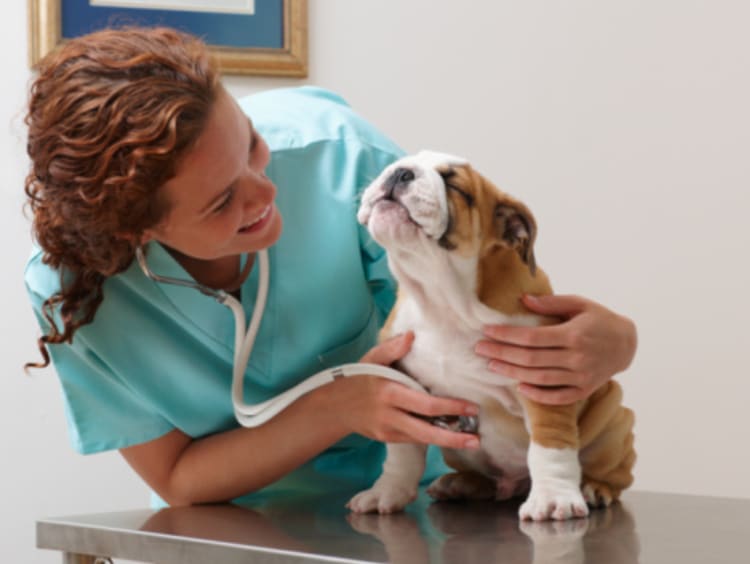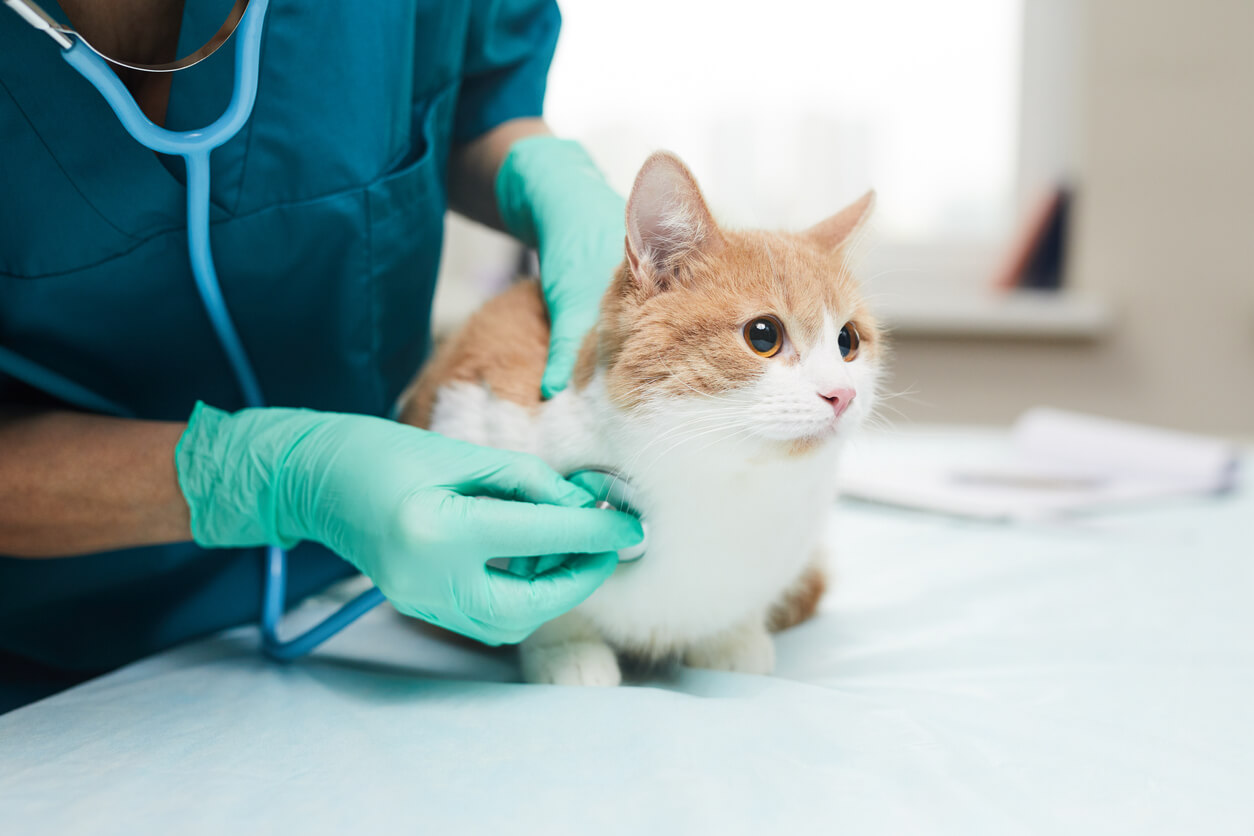How Emergency Vet Solutions Can Provide Immediate Alleviation for Pet Health Crises
Inoculation Guidelines From Your Trusted Veterinarian
Inoculation guidelines given by your trusted vet play a vital role in guarding your family pet's health and health. Additionally, addressing usual misunderstandings surrounding vaccinations can additionally enhance family pet owners' self-confidence in these preventative procedures.

Importance of Inoculations
Inoculations play a critical duty in protecting family pets versus a series of avoidable diseases. By promoting the body immune system to identify and combat details pathogens, vaccines considerably lower the occurrence of infectious diseases that can impact a family pet's health and wellness and longevity. Not only do vaccinations protect specific animals, however they also contribute to herd immunity, thus lowering the general prevalence of illness in the animal population.
Prompt vaccinations help to mitigate the spread of conditions such as rabies, parvovirus, and distemper, which can have serious effects for both people and family pets. Moreover, inoculations are usually a need for boarding facilities, grooming services, and canine parks, making them necessary for those who want to socialize their pets.

Core Injections for Animals
While the specific inoculation requirements of pets can differ based on individual factors, core vaccinations are generally suggested to safeguard against the most usual and serious conditions (Vet Enterprise). Core vaccines are those deemed essential for all pets, despite their way of living or geographical area, as they guard versus very transmittable and possibly fatal diseases
For pet dogs, the core injections consist of those for canine distemper, parvovirus, adenovirus (hepatitis), and rabies. Canine distemper is a viral disease that affects the breathing, gastrointestinal, and nerve systems. Parvovirus is known for triggering severe gastrointestinal health problem, specifically in puppies. Adenovirus can lead to liver illness, while rabies is a zoonotic condition that poses a danger to both humans and animals.
In felines, core injections include feline panleukopenia, feline calicivirus, feline herpesvirus (rhinotracheitis), and rabies. Feline panleukopenia is a very transmittable viral condition that influences the body immune system and intestinal tracts. Calicivirus and herpesvirus are significant factors to top respiratory system infections in pet cats, while rabies continues to be a vital worry for public wellness.
Seek advice from your vet to guarantee your family pets obtain their core inoculations on schedule.
Non-Core Vaccines Explained
Non-core vaccines are customized to resolve details threats related to a family pet's way of life, atmosphere, and exposure to certain diseases. Unlike core vaccines, which are universally advised for all pet dogs, non-core injections are thought about based on individual conditions. These vaccinations are especially vital for animals that may encounter special pathogens due to their geographical area, traveling routines, or tasks.
Examples of non-core injections consist of those for Bordetella bronchiseptica, which is linked to kennel cough, and Lyme illness, basics triggered by ticks. Animals that often engage with other animals, such as those in boarding Clicking Here facilities, pet parks, or grooming environments, may gain from Bordetella vaccination. If you live in an area where Lyme condition is widespread, immunizing versus this disease can be a prudent choice for outdoor-loving pet dogs.
Other non-core vaccines might include those for leptospirosis, canine influenza, and feline leukemia, relying on the particular threat variables existing. It is vital to have an extensive conversation with your vet regarding your animal's way of living and the potential demand for these injections, guaranteeing a customized inoculation approach that best safeguards your furry friend.
Inoculation Set Up Introduction

As pets grow, it is crucial to stick to the recommended booster inoculations. Emergency Vet. For grown-up animals, core vaccines are normally provided every one to three years, depending on the specific vaccination and local guidelines. Non-core vaccinations might be encouraged based upon lifestyle factors and local illness prevalence, demanding a customized strategy
Routine vet check-ups are crucial for upgrading inoculation routines. Your vet can give support on the most suitable immunizations for your pet, factoring in age, wellness standing, and environmental threats. By staying aggressive and informed, pet owners can ensure their furry buddies get effective and prompt vaccinations, consequently guarding their health and wellness and well-being throughout their lives.
Typical Misconceptions Concerning Injections
False impressions concerning pet dog inoculations can lead to complication and hesitation among pet dog proprietors pertaining to the booster shot process. One widespread myth is that vaccines are unnecessary for indoor family pets. While it holds true that indoor pet dogs deal with lower risks, they are not entirely immune to conditions, as virus can be introduced via different ways, consisting of human garments and other pet dogs.
One more false impression is that injections can cause the conditions they intend to avoid. In truth, great site many vaccines have suspended or undermined virus, which can not create condition in healthy and balanced pets. Some animal owners additionally believe that their animals need to not be immunized if they are currently healthy and balanced; nonetheless, vaccinations are an aggressive action that helps protect against the beginning of disease.
In addition, many animal proprietors are afraid that vaccines will lead to long-term health complications. The benefits of vaccination-- protecting pets from potentially dangerous illness-- much exceed the threats.
Final Thought
In summary, adherence to inoculation standards is important for making certain the wellness and long life of pet dogs. Dispelling typical misconceptions surrounding inoculations further strengthens the importance of educated decision-making in pet treatment.
Not just do vaccinations protect specific animals, but they additionally add to herd resistance, consequently decreasing the overall prevalence of diseases in the family pet population.
False impressions concerning family pet inoculations can lead to confusion and hesitation amongst pet proprietors pertaining to the booster shot process. While it's real that interior pets encounter lower risks, they are not completely immune to diseases, as virus can be presented through various ways, consisting of human apparel and various other family pets.
Some family pet proprietors likewise think that their animals need to not be vaccinated if they are currently healthy; nonetheless, inoculations are a proactive procedure that helps stop the onset of ailment.
The advantages of inoculation-- shielding animals from possibly serious diseases-- far exceed the threats.